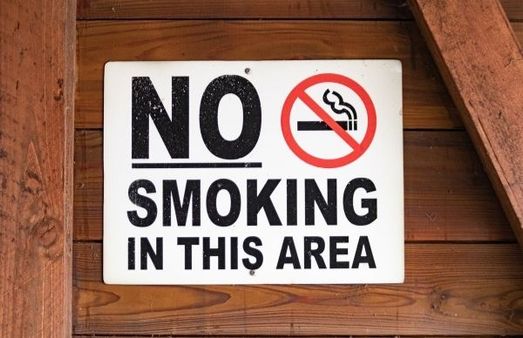Just In
- 6 hrs ago

- 7 hrs ago

- 11 hrs ago

- 12 hrs ago

Don't Miss
- Sports
 Olympic Selection Trials: Ashi-Swapnil Shine In 3-Position Shooting
Olympic Selection Trials: Ashi-Swapnil Shine In 3-Position Shooting - News
 Senator Lambie Calls For Elon Musk's Imprisonment Over Wakeley Church Stabbing Posts
Senator Lambie Calls For Elon Musk's Imprisonment Over Wakeley Church Stabbing Posts - Movies
 Mirzapur 3 OTT Release Date, Platform: When Will Mirzapur Season 3 Premiere On Amazon Prime Video?
Mirzapur 3 OTT Release Date, Platform: When Will Mirzapur Season 3 Premiere On Amazon Prime Video? - Finance
 25% Dividend Record Date: Logistic Stock Nears 1-Year High And It Belongs To Mahindra; Motilal Neutral
25% Dividend Record Date: Logistic Stock Nears 1-Year High And It Belongs To Mahindra; Motilal Neutral - Education
 Telangana Inter Manabadi 1st and 2nd Year Results 2024 to be Declared Tomorrow
Telangana Inter Manabadi 1st and 2nd Year Results 2024 to be Declared Tomorrow - Automobiles
 Chrysler Pacifica Marks Seven Years As Most Awarded Minivan With New Campaign
Chrysler Pacifica Marks Seven Years As Most Awarded Minivan With New Campaign - Technology
 Xiaomi Robot Vacuum Cleaner S10, Handheld Garment Steamer, and Redmi Buds 5A Launched in India
Xiaomi Robot Vacuum Cleaner S10, Handheld Garment Steamer, and Redmi Buds 5A Launched in India - Travel
Kurnool's Hidden Gems: A Guide To Exploring India's Lesser-Known Treasures
World Health Day 2022: How To Help Someone Quit Smoking; Does Support Work? A Step-by-Step Guide
World Health Day is observed on 7 April every year. This global health awareness day is celebrated under the sponsorship of the World Health Organization (WHO). The day marks the founding of WHO and raises awareness of the importance of global health.
Initiated in 1948 and coming to effect in 1950, the day aims to create awareness of a specific health theme to highlight a priority area of concern for the World Health Organization. The 2022 theme for World Health Day is 'Our planet, Our health.' On World Health Day 2022, WHO will bring global attention to the urgent need to keep humans and the planet healthy and create societies focused on well-being, the global health agency said [1].

According to WHO, there are 13 million avoidable environmental deaths worldwide every year. In addition, a major threat to humanity's health is the climate crisis, which is also a health crisis, WHO added.
Smoking is one of the biggest causes of death and illness around the globe. Tobacco kills more than 8 million people each year. More than 7 million of those deaths result from direct tobacco use. At the same time, around 1.2 million are the result of non-smokers being exposed to second-hand smoke [2].
Being with someone, be it a friend, a partner or a parent, who incessantly smokes is in no way beneficial to your mental, emotional or physical well-being, and that's a proven fact [3]. So today, we will look into how you can help your loved one quit the habit of smoking.
Let's take a look at How To Help Someone Quit Smoking.

How To Help Someone Quit Smoking
The Centers for Disease Control and Prevention (CDC) estimates that 70 per cent of adult smokers want to quit. However, a smaller percentage of smokers succeed in quitting. In addition, quitting can require more than one attempt [4].
People who have a support system are more likely to stop smoking. As you might not realize, you play a critical role in your partner's, friend's, or loved one's ability to quit.
Step 1: Start A Conversation
Getting someone to talk about quitting smoking can be difficult. Look for opportunities to start the conversation. React positively when someone says [5]:
- "I'm thinking about giving up smoking."
- "My doctor advised me to stop smoking."
- "I should probably quit smoking for my kids since they always ask about my cigarettes."
Tell them you're glad they're considering quitting and that you're ready to assist. You may benefit from your experience of quitting smoking if you are an ex-smoker. Let them know you feel better now that you are no longer smoking.

Step 2: Express Concern Without Lecturing/Nagging
Since many smokers already know about the health risks of smoking, there's no need to lecture/nag.
Nevertheless, the increased risks of lung cancer and heart disease may not be sufficient to deter smokers. In addition, according to the American Heart Association, nicotine may be as addictive as cocaine and heroin [6].
When you're trying to help someone quit smoking, here are some things to avoid:
- Constantly nagging them about how bad smoking is.
- Counting how many cigarettes they smoke every day.
- Asking them if they smoked.
- Arguing about them being irritable when going through the withdrawal phase.
- Getting upset if they slip and smoke a cigarette.

Step 3: Help Them Find Alternatives And Distractions
Provide support to your family member or friend by helping them plan smoke-free activities. Many people who want to quit smoking use nicotine replacement therapy. You can buy them in various forms, including patches, gum, lozenges, nasal sprays, and inhalers.
Other distractions you can offer them are [7]:
- See a movie.
- Go for a walk.
- Invite your friends over for a game night.
- Cook dinner.
- Dine at their favourite restaurant.
- Enrol in a photography, painting, or cooking class.
- Attend a concert.
- Visit places where smoking is not permitted.

Step 4: Be Patient
One reason many smokers hesitate to quit is the fear of withdrawal symptoms. These can include the following:
- Anger
- Weight gain
- Irritability
- Anxiety
- Difficulty concentrating
- Restlessness
- A reduced heart rate
- Difficulty sleeping
- Increased appetite
In some cases, withdrawal symptoms are more intense than cravings for cigarettes. In other words, even if they are no longer craving nicotine emotionally, they may still be experiencing physical withdrawals.
Knowing this beforehand will help you prepare for withdrawal symptoms. Be patient during the withdrawal process because they need to know that you will be there to help them even if they fall back on the plan [8].

Step 5: Celebrate All Successes
Celebrate your friend or family member's smoke-free achievements and milestones. A smoke-free day, a smoke-free week or a smoke-free year are all causes for celebration - as are removing all ashtrays from the house, getting rid of cigarette reminders, and skipping an after-dinner smoke. Help your friend or family member celebrate by doing the following:
- Surprising them with tickets to movies or their favourite shows.
- Giving them a gift card to their favourite stores.
- Making a home-cooked dinner or making a date out of it.
Step 6: Know When To Seek Professional Help
It's important to know when to turn to outside resources when you can help your partner or your friend. For example, in your partner has severe withdrawal symptoms, you may be able to help them find behavioural therapy. Group therapy may also be beneficial since it provides social support from fellow smokers who want to quit [9].
Getting professional help can help reduce any strain on your relationship too.

Dos And Don'ts While Helping Someone Quit Smoking
According to experts, the following are extremely important when you are helping someone get over their smoking habit.
- Do respect that the person seeking to stop smoking is in charge - it is their life-changing challenge.
- Do ask the person if they want you to ask regularly how they are doing and how they are feeling - not just whether they have stayed quiet.
- Do see it from the perspective of the person who's quitting - their habit may feel like an old friend who's always been there for them when times are tough.
- Do keep your home smoke-free, which means no one can smoke in any part of the house.
- Do let the person know that you are available whenever they need encouragement.
- To help the person quitting with chores, childcare, cooking, or running errands - whatever will help ease the stress of quitting.
- Do help the quitting person get what they need, including hard candy to eat, straws to chew on, and fresh vegetables in the refrigerator.
- Do spend time with the person who is quitting to keep their mind off the addiction - go to the movies, take a walk to get past a craving or go for a bike ride.
- Do get rid of lighters and ashtrays in your home - anything that reminds them of smoking should be removed.
- Do wash clothes that smell like smoke, and clean carpets and drapes. Air fresheners can help eliminate tobacco smells - and don't forget your car, either.
- Do celebrate the progress along the way.
- Do not forget to thank the person quitting for not exposing others to second-hand smoke.
- Do not doubt their ability to quit because your faith in them helps them realize they can do it.
- Do not judge, nag, preach, tease, or scold. It could make them feel worse - you don't want them to turn to a cigarette to ease their pain.
- Do not take it personally when someone going through nicotine withdrawal becomes irritated and grumpy. You should let them know that you understand the symptoms are real and remind them that they won't last forever - the symptoms usually subside in a few weeks.
- Do not give advice - just ask what you can do to help if they use a plan or a program.
- Do remind them that they didn't fail; if they slip - they are learning how to quit - and you're going to be there for them the next time and as many times as it takes.

If You Smoke And Are Friends With Someone Trying To Quit:
- Do not smoke near someone trying to quit, and always smoke outside [10].
- Keep cigarette lighters, matches, and cigarettes out of sight. They may trigger your loved one to smoke.
- Do not offer the person trying to quit a smoke or any other tobacco product, even as a joke.
- Support your loved one's efforts - join them. It's better for your health and might be easier to do with someone trying to quit.

On A Final Note…
Nicotine is a drug - a nicotine addiction can be emotionally and physically painful, especially if your partner experiences withdrawals and cravings.
Smokers who attempt to quit typically don't succeed the first time, and they may need to try several times before they succeed. By understanding and supporting your partner, your friend, you increase their chances of succeeding.

- How long does nicotine withdrawal last?
Nicotine withdrawal symptoms usually begin a few hours after your last cigarette and they are strongest in the first week. For most people, nicotine withdrawal fade and is gone after about 2 to 4 weeks.
- What would you say to someone to help them quit smoking?
Being continually supportive and understanding of their struggle to get over the smoking habit (addiction) can help them reaching towards the finish line - that is, to quit smoking. Do not give advice - just ask what you can do to help if they use a plan or a program.
- How can I help someone to stop smoking?
You can support someone to stop smoking by being supportive, being patient, helping them get professional care etc.
-
 insyncWorld No Smoking Day 2024: Slogans, Quotes, Images, Wishes, To Share On This Day And Spread Awareness
insyncWorld No Smoking Day 2024: Slogans, Quotes, Images, Wishes, To Share On This Day And Spread Awareness -
 healthWhat Will Happen To Your Body If You Quit Smoking? Timescale Of Health Benefits
healthWhat Will Happen To Your Body If You Quit Smoking? Timescale Of Health Benefits -
 healthThis Social Issue Could Be The Next ‘Epidemic,’ It Is Worse Than Smoking 15 Cigarettes A Day
healthThis Social Issue Could Be The Next ‘Epidemic,’ It Is Worse Than Smoking 15 Cigarettes A Day -
 healthWant To Live Longer? Embrace These 8 Healthy Habits Today
healthWant To Live Longer? Embrace These 8 Healthy Habits Today -
 pregnancy parentingWorld No Tobacco Day: How Does Secondhand Smoking Affect Children?
pregnancy parentingWorld No Tobacco Day: How Does Secondhand Smoking Affect Children? -
 healthMyths vs Facts: Is Sitting The New Smoking?
healthMyths vs Facts: Is Sitting The New Smoking? -
 healthWhat’s The Best Age To Quit Smoking? How Much Money Can You Save If You Quit?
healthWhat’s The Best Age To Quit Smoking? How Much Money Can You Save If You Quit? -
 healthIs Vaping More Harmful Than Smoking Cigarettes?
healthIs Vaping More Harmful Than Smoking Cigarettes? -
 disorders cureWorld Kidney Day 2023: Kidney Cancer: Know Causes, Symptoms, Signs & Treatment
disorders cureWorld Kidney Day 2023: Kidney Cancer: Know Causes, Symptoms, Signs & Treatment -
 healthNew Zealand Will Ban The Sale Of Tobacco For The Benefit Of Future Generations
healthNew Zealand Will Ban The Sale Of Tobacco For The Benefit Of Future Generations -
 wellnessSmoking Linked To Thicker And Weaker Heart, Says New Study
wellnessSmoking Linked To Thicker And Weaker Heart, Says New Study -
 wellnessSmoking, Alcohol & High BMI Are Primary Risk Factors For Cancer Death: Study
wellnessSmoking, Alcohol & High BMI Are Primary Risk Factors For Cancer Death: Study


 Click it and Unblock the Notifications
Click it and Unblock the Notifications



